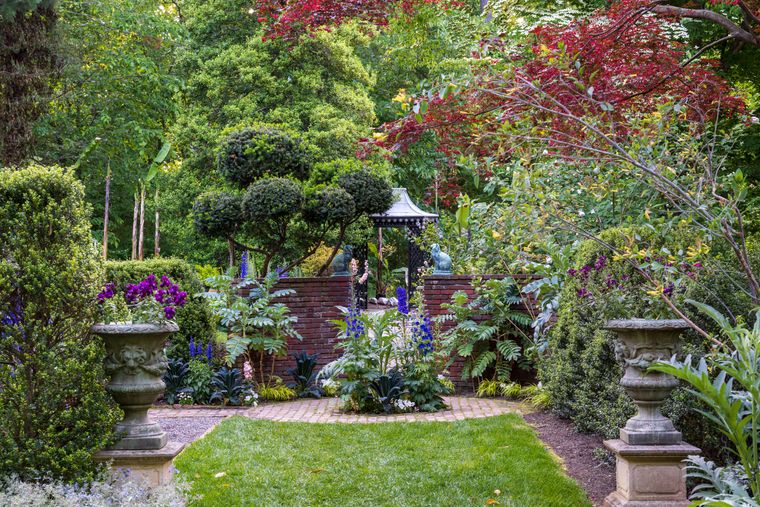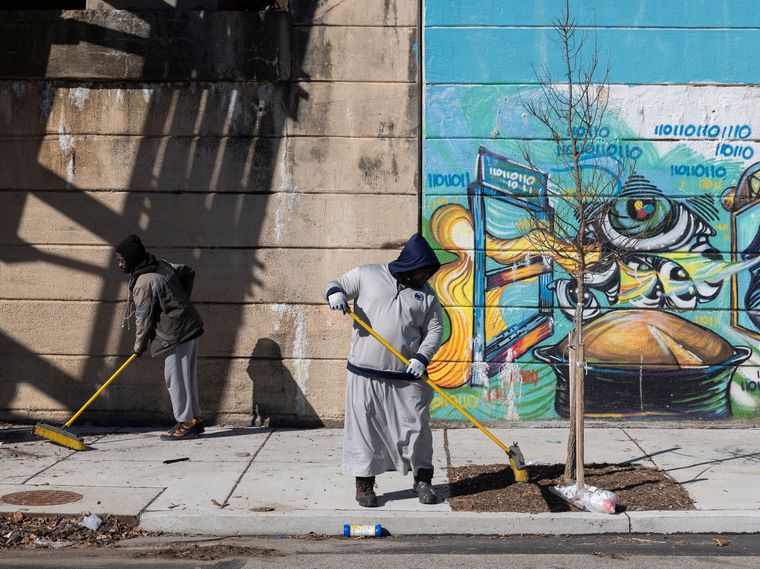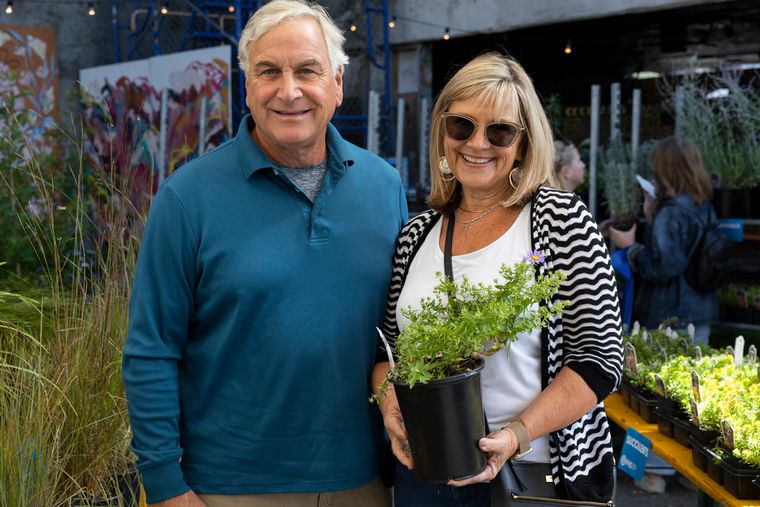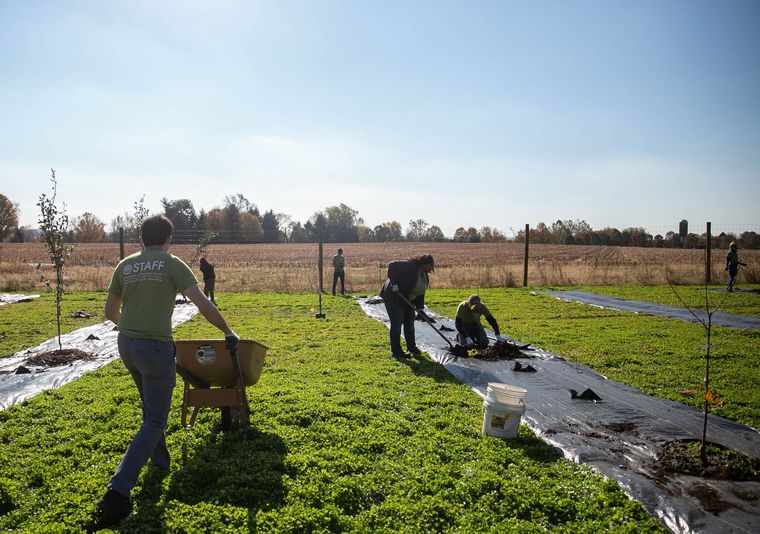



PHS Turns Vacant Lots into Pollinator Paradise
phs community & events
sustainable gardening

Philadelphia has over 40,000 vacant lots, many of which are in disarray -- filled with overgrown weeds, trash, and debris. PHS’s Philadelphia LandCare program – a nationally recognized model of landscape treatment and urban revitalization – has been cleaning and greening a growing number of lots in the city – now totaling more than 12,000 each year --- since 2004.
In 2019, PHS collaborated with the National Wildlife Federation to undergo a pilot project around pollinator gardens in vacant lots around the city. “We received funding from the Wildlife Conservation Society to plant 50 pollinator gardens on LandCare sites in proximity to Fairmount Park,” says Samir Dalal, PHS Planning Manager, LandCare.
“Each pollinator garden consists of approximately 300 native plants that support a healthy ecosystem,” says Dalal. Plants -- ranging from flowering echinacea, aster, and bee balm to local grasses such as prairie dropseed and blue grama -- provide food, shelter, and places for local bees, birds, and insects to raise their young. Pollinator gardens like these create a healthier ecosystem by helping to mitigate the impacts of climate change.
“Some local residents are thinking of ways to engage their neighbors and children in activities around the importance of pollinators and organizing clean-up days for the gardens in their community,” says Dalal.
With the gardens planted in the Fall of 2019, most of the plants survived the winter months and bloomed this Spring. “We are working with local landscape contractors to tend to the gardens by weeding, watering, and mulching during this growing season and next year to insure that the gardens become stable and are thriving after 2 years,” explains Dalal. Because these gardens are planted with native plants, they should require little maintenance and become self-sustainable over time.
PHS’s LandCare program plans to continue special projects like these in vacant lots throughout the city, finding ways to continuously improve the community’s health, economy, and environment.
PHS aids in development of green spaces all through neighborhoods in the Greater Philadelphia region


